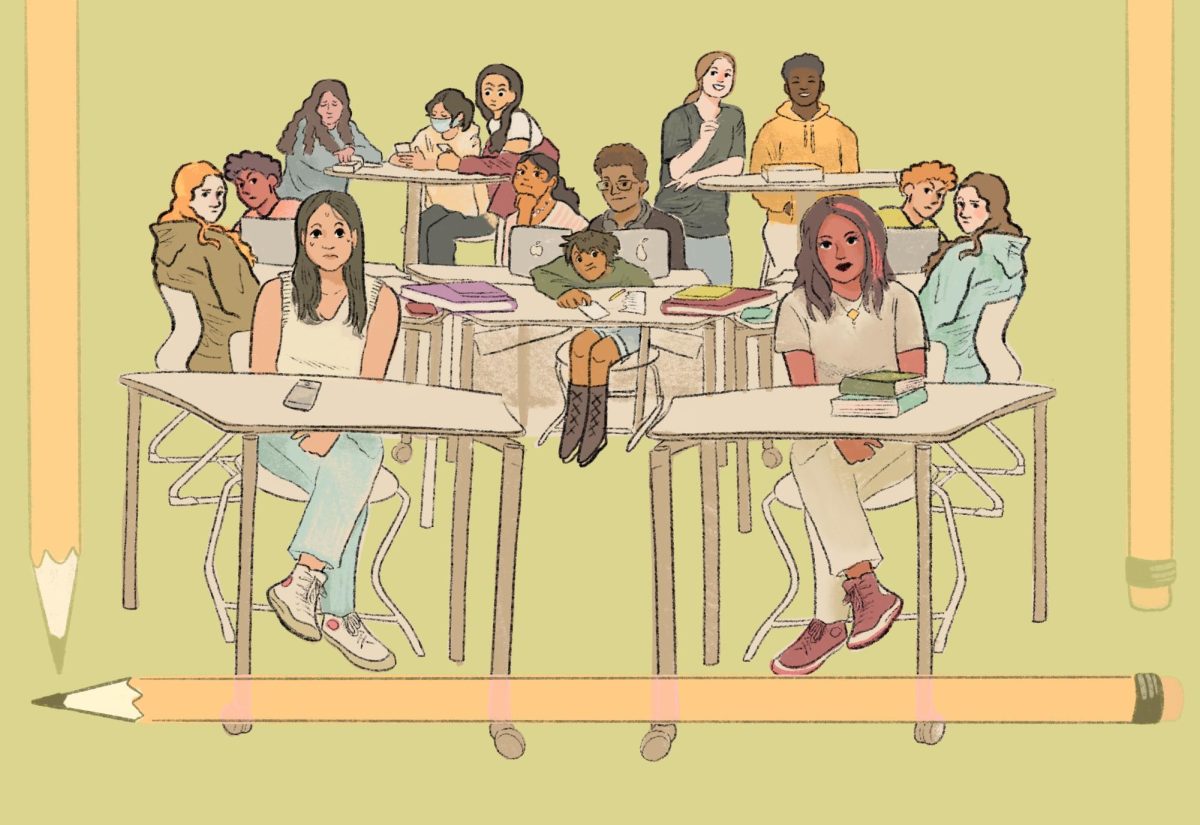From one-room schoolhouses to six classes a day, teaching as a profession has evolved — and in many ways, has trended in the wrong direction. From burnout to budget cuts, being an educator in today’s society is more difficult than ever. Rather than pursuing their passion for building up kids, teachers are having to contend with controversy at every turn, leading to a teaching shortage nationwide.
School districts are resorting to uncertified individuals to fill this gap. Uncertified teachers made up 30% of the teachers hired in Texas within the last school year, which can have significant effects on the quality of education students will receive.
The landscape of teaching may seem bleak, but it doesn’t have to be this way. Many aspiring teachers are terrified to enter the education system and are often unaware of the outside resources and programs eager to support teachers and help change the field by teaching them more than just the school’s curriculum.
At UT, one particular resource, the Urban Teachers Program, helps its students gain a broader perspective of teaching to help accommodate and support students with all types of backgrounds, abilities and learning styles. Many teachers have no choice but to teach to standardized tests like the STAAR rather than teaching to each student’s strengths, but the program teaches instructors how to create compliant yet unique curriculums tailored for individual students, which can help prevent burnout in the long run.
Strict curriculum requirements have intensified disillusionment and burnout in even the most passionate teachers. But, the program prepares educators to help children express themselves both in and out of the classroom, according to Deborah Kelt, Associate Professor of Practice and Cohort Coordinator of the UT Urban Teachers Program.
“Our program is designed to resist [the] messaging that the kids are behind, and to talk about what the kids do have … all the work we do in the field is to help our students take what’s there with the students and help them grow further,” Kelt said. “It’s a hard time now, but [that] doesn’t mean the work can’t be amazing and joyful.”
This type of program is the future of teaching. Learning to capitalize off of students’ strengths instead of trying to ‘catch them up’ is a teaching strategy that can improve student-teacher relationships, reduce burnout and promote a lifelong love for learning in children.
Louisa Hudec, an alumnus of this program and current Austin public school teacher, says that the opportunities for hands-on experience has allowed her to implement a unique approach to each student’s individual needs regardless of the current issues facing the education system.
“There’s a lot going on with these kids, so when they struggle … I have the perspective that I have the tools to help them as best I can,” Hudec said. “I’m helping these kids just by being consistent, and by showing them I value them as people and value their culture.”
When the system fails to uplift our teachers, the teachers aren’t able to uplift their students. By giving them a worldly view of teaching, programs like this equip future teachers with the ability to teach to each student’s unique needs, which relieves them of the mental burdens of poor student performance as a result of an incompatible teaching style.
While the Urban Teachers Program is one of many paths toward being a teacher, its instructional foundation is a testament to the potential for the future of education. The education system may be in rough waters, but with a positive mindset, determination and passion, anyone can take the reins and be the one to steer it in the right direction one child at a time.
Herman is a Plan II and psychology freshman from Southlake, Texas.















